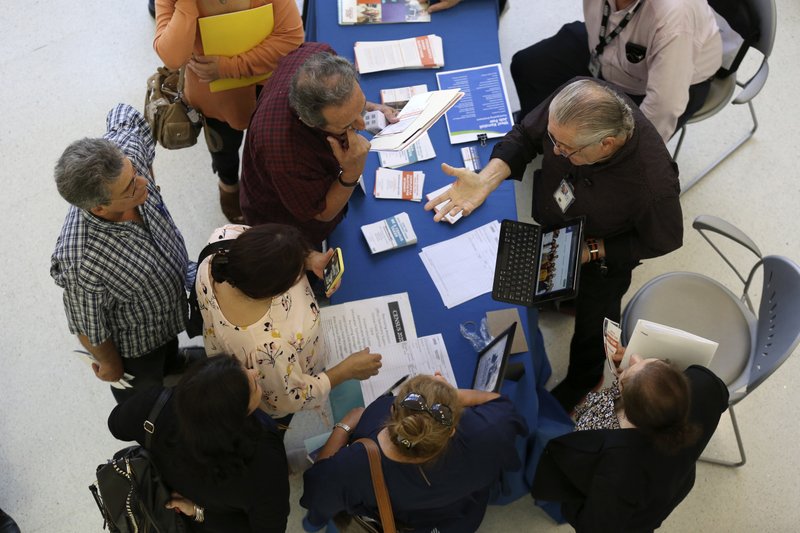ORLANDO, Fla. -- The U.S. Census Bureau said it has reached its goal of recruiting more than 2.6 million applicants for the once-a-decade head count that launched for most of America this week -- but it has been a bumpy road getting there and the new coronavirus will probably make the path even more difficult.
The nation's abundance of jobs has complicated the effort, and some rural areas -- particularly in New England, Appalachia and some Rocky Mountain states -- are falling behind recruitment goals as the agency works to hire up to a half-million temporary workers before May. Falling short could threaten the count in some parts of the country, which in turn could lead to underrepresentation in Congress and less federal funding.
An analysis by The Associated Press shows how low unemployment has affected the bureau's ability to attract workers, with urban counties, especially large ones, more likely to hit recruitment goals than rural areas.
The bureau has yet to account for how hiring could be affected by coronavirus concerns. The virus may dampen workers' enthusiasm for going door to door, but it could also create a new application pool of workers who have been laid off.
On Friday, Census Bureau officials told U.S. lawmakers that concerns about the virus hadn't yet caused a drop in staffing levels, according to a statement from the House Committee on Oversight and Reform.
The Census Bureau hasn't ruled out extending the count past the end of July, and bureau officials will make a decision after reviewing response rates. The bureau also is shifting training for temporary census-takers online and providing safety equipment for workers, according to the House committee.
The 2020 census started this week with the online questionnaire going live and notices being sent out for people to start answering the questions. In response to coronavirus concerns, the Census Bureau said this week, "It has never been easier to respond on your own, whether online, over the phone or by mail -- all without having to meet a census taker."
Some advocates leading census outreach efforts Friday worried that the coronavirus would lead some census takers to quit their jobs, said Jeri Green, 2020 census senior adviser for the National Urban League.
While the Census Bureau has reached its recruiting goal nationally, hiring has varied widely from place to place. States with populations concentrated in large metro areas -- Georgia, Illinois, Maryland and Nevada -- have overrecruited. Mostly rural states with high numbers of older residents -- Maine, New Hampshire, West Virginia and Vermont -- are well below recruitment goals.
If the bureau can't find enough applicants in those areas, "it may have difficulty hiring enough staff to complete upcoming operations, leading to delays, increased costs and eroded data quality," J. Christopher Mihm of the Government Accountability Office said during a congressional hearing last month.
"Recruitment and hiring success in one area may provide little advantage to an area where efforts are lagging," Mihm said. "The census, while a national effort, is implemented locally in communities and neighborhoods across the country."
Most of the workers will be hired to knock on the doors of households whose residents haven't responded by May to the census either online, by phone or through the mail in what is the federal government's largest peacetime mobilization. The Census Bureau hopes to hire people from the areas they will be working in because they know their communities best.
Census Bureau officials insist there's no reason to be worried. As of the end of February, there were more than 22,500 temporary workers on the payroll, the bureau reported last week.
There are at least three recruits for every position in every part of the country, and in some parts, there are four or five applicants, Census Bureau Director Steven Dillingham told lawmakers last month.
The census helps determine the allocation of $1.5 trillion in federal spending and how many congressional seats each state gets. For the first time, the bureau is encouraging most people to fill out their forms online.
After recruiting efforts hit a plateau in December, the Census Bureau increased its hourly wages by about $1.50 in almost three-quarters of U.S. counties. The pay now ranges from $14 an hour to almost $30, depending on the city, with workers in California, Chicago and the Northeast earning the most.
A Section on 03/14/2020

